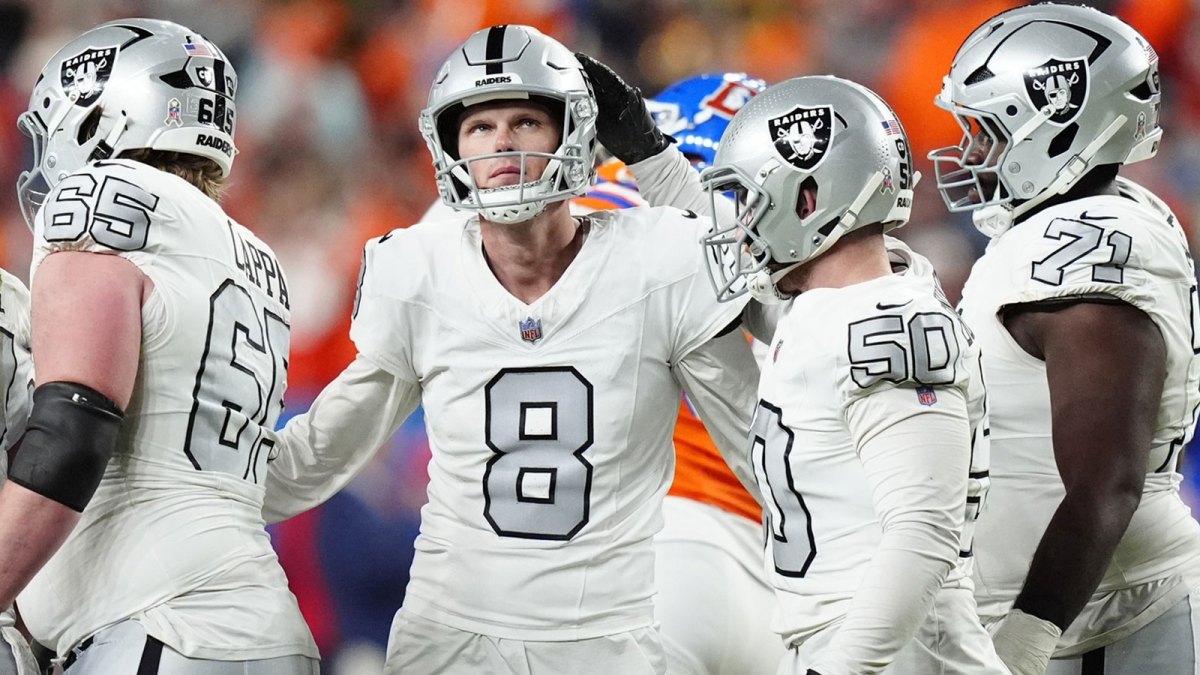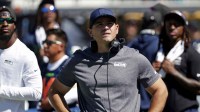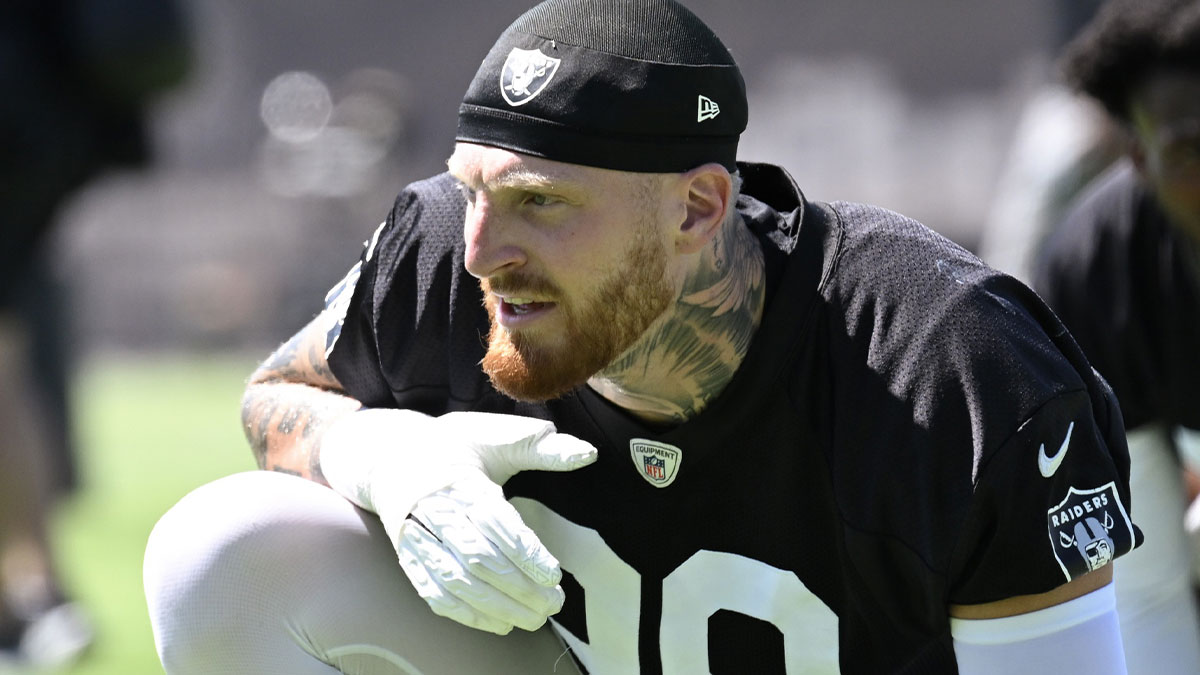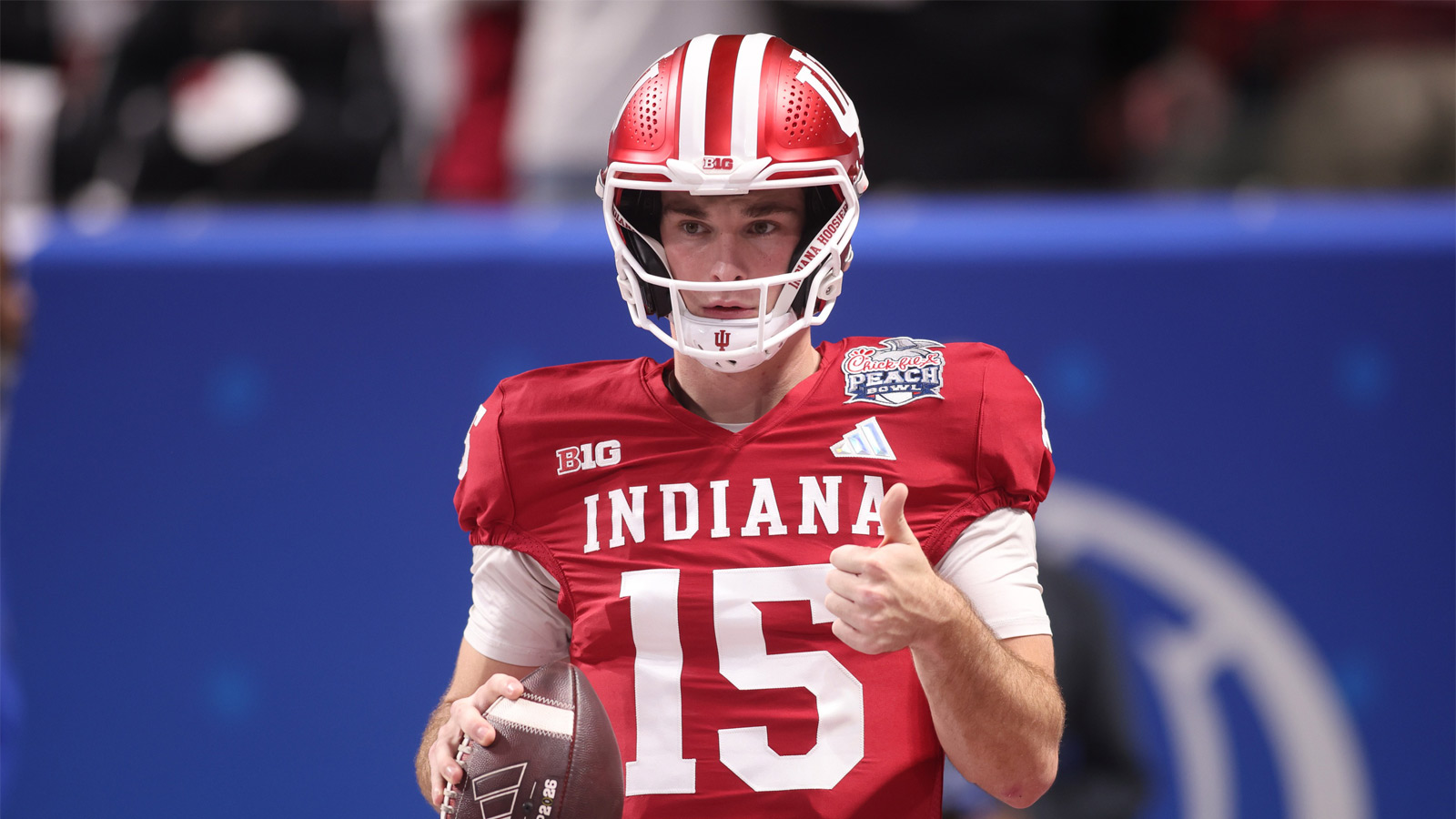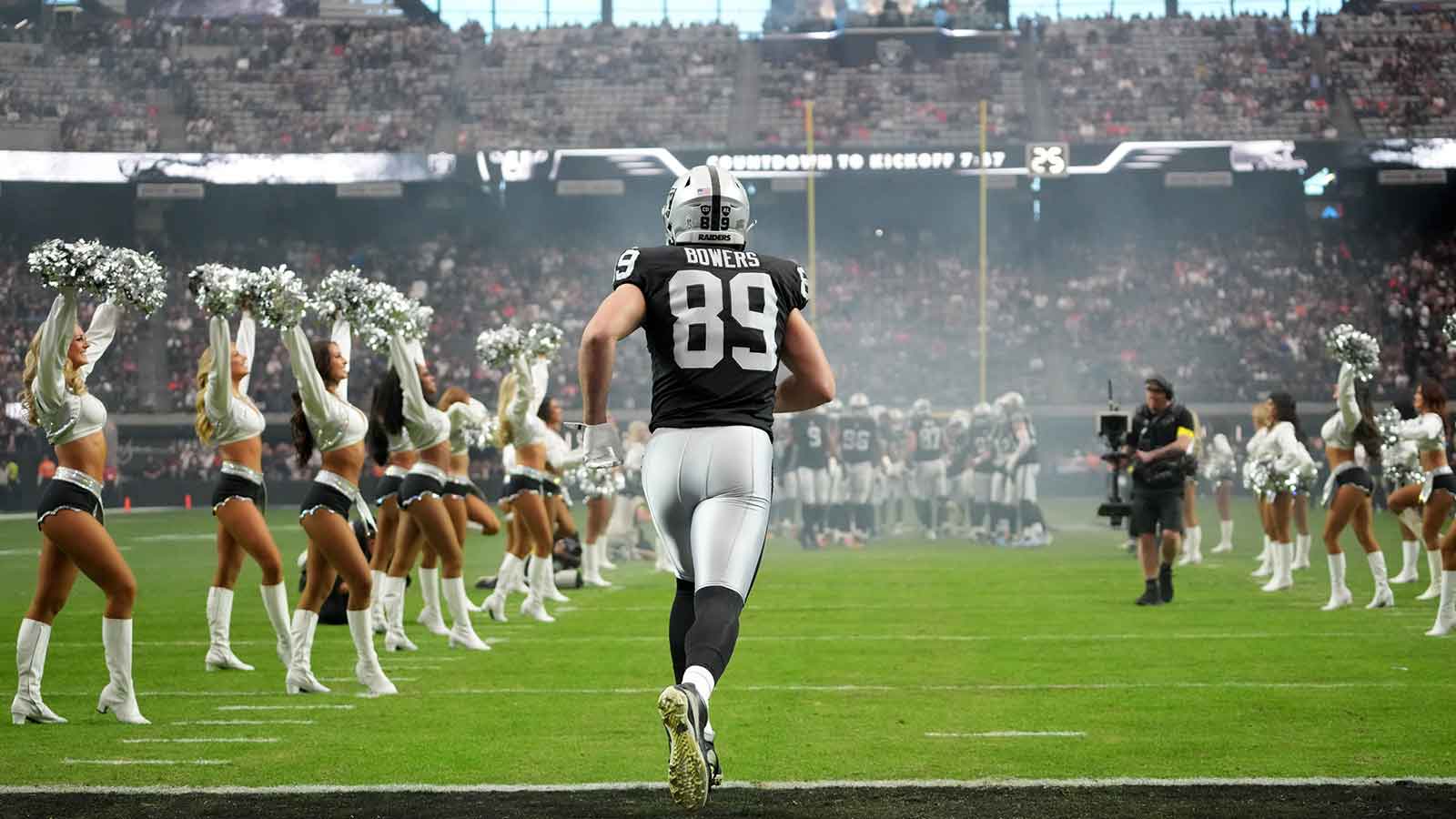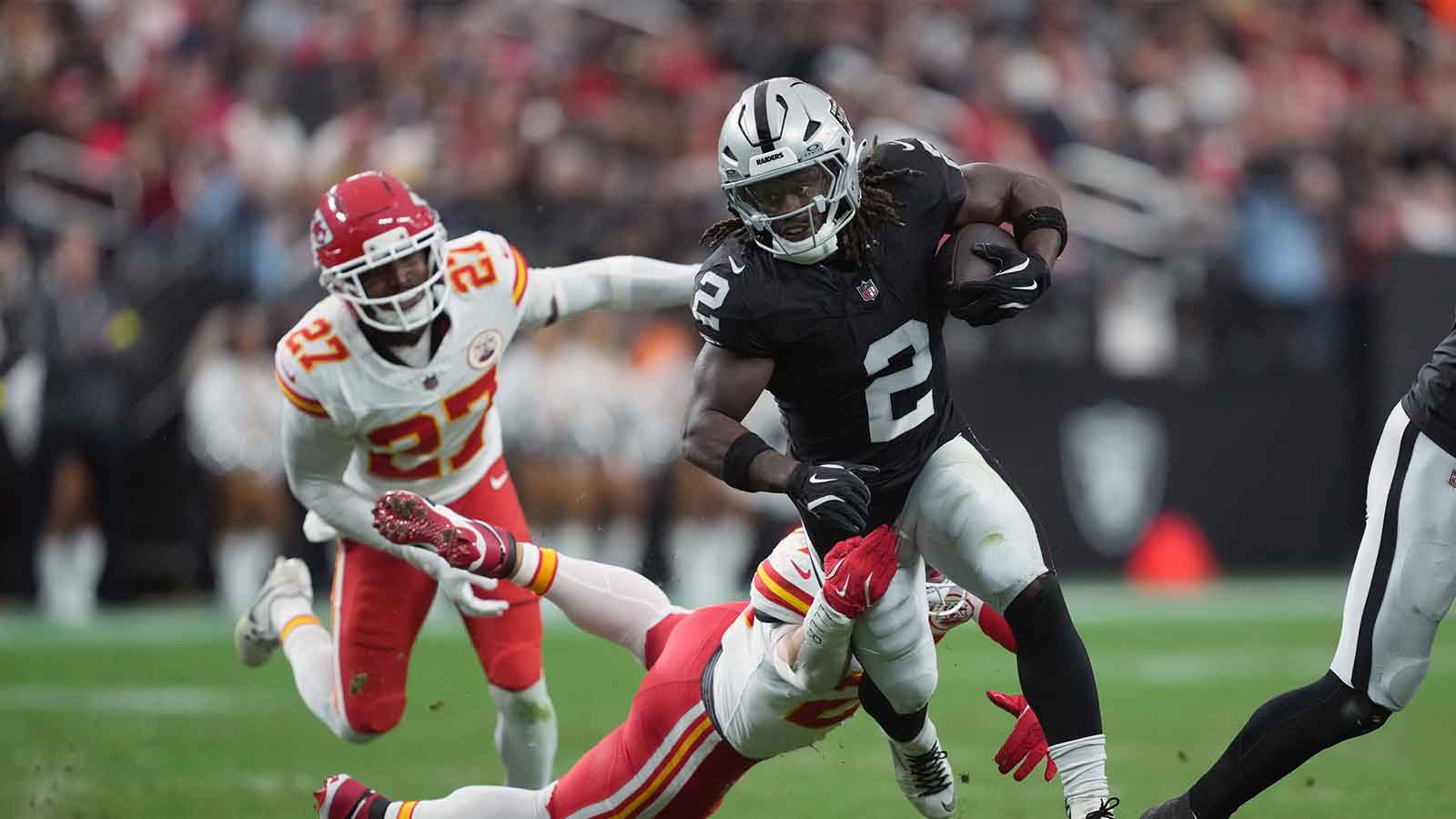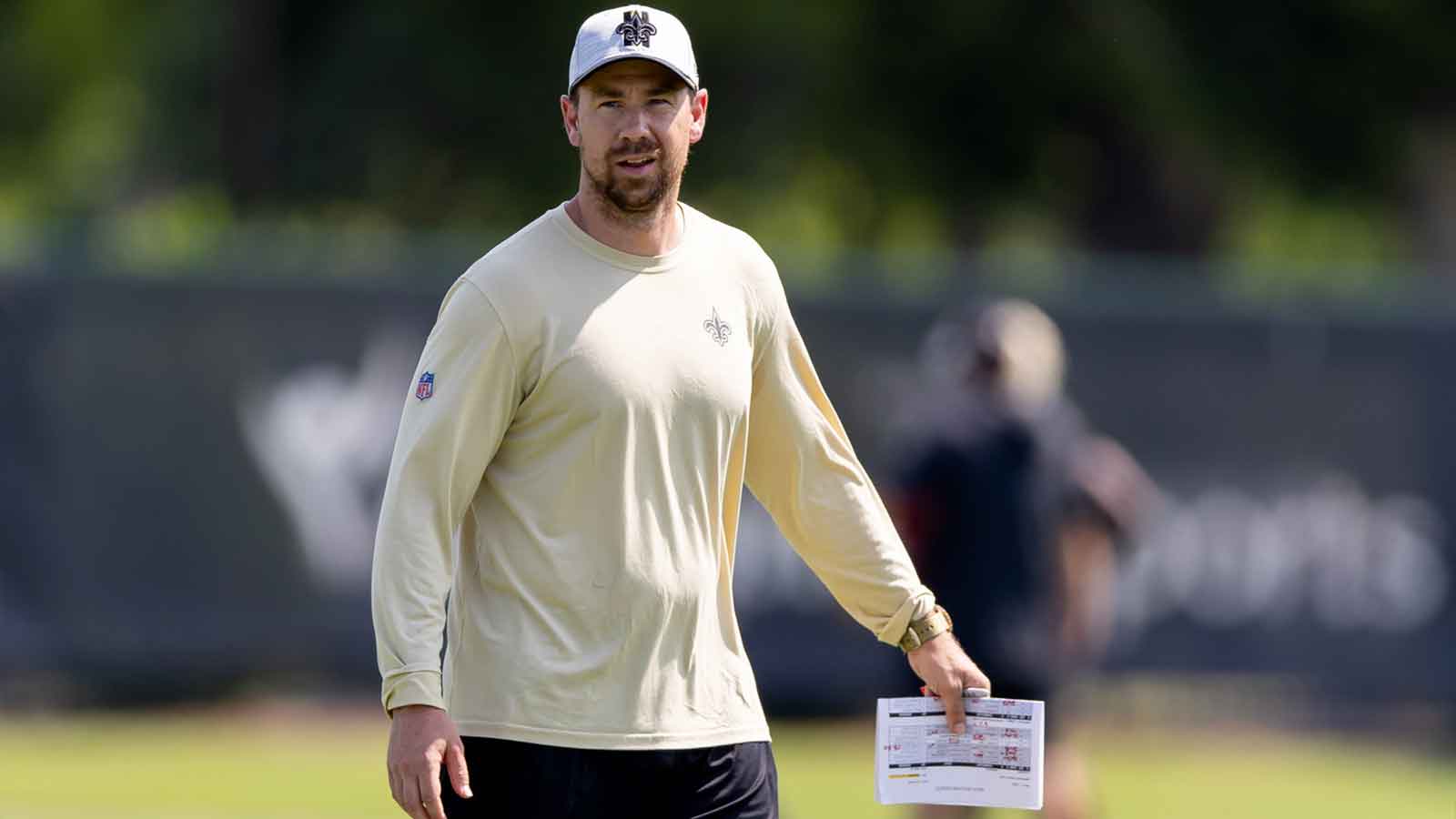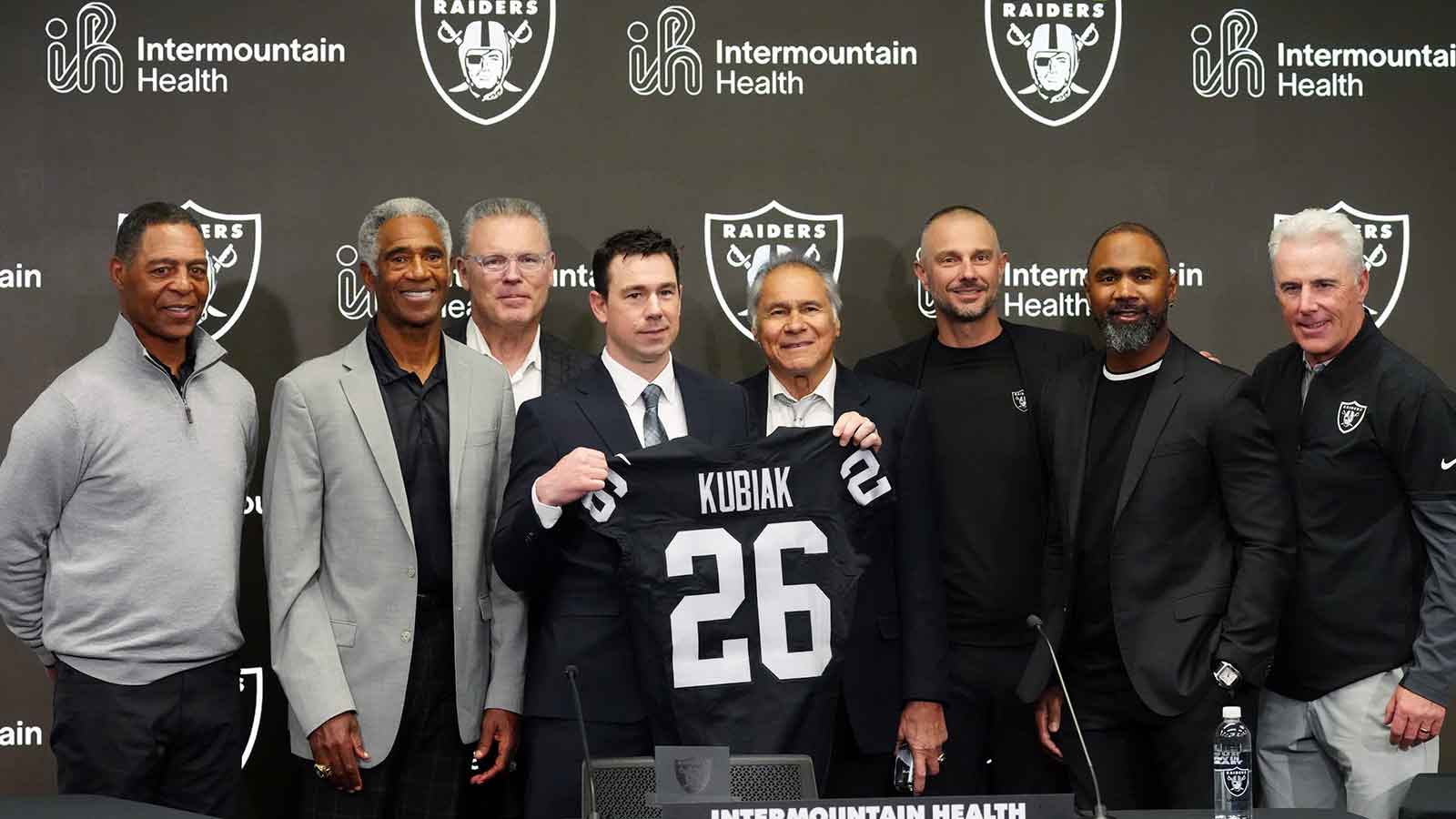The Las Vegas Raiders hit a new low on Thursday Night Football, falling 10-7 to the Denver Broncos in one of the ugliest games of the NFL season. It wasn’t just another defeat — it exposed the Raiders’ lack of execution, preparation, and accountability. The defense held up its end, but everything else unraveled.
The Raiders entered the night hoping to snap a two-game skid and salvage some pride on national television. Instead, the Broncos vs. Raiders matchup exposed every flaw that has defined their season — from inconsistent quarterback play to a battered offensive line to another costly special teams collapse. By the final whistle, the Raiders had managed just 188 total yards and one touchdown, squandering yet another strong defensive performance that held the Broncos under 225 yards.
Let’s start with Geno Smith. The veteran quarterback looked overwhelmed from the opening drive, constantly under pressure behind a depleted offensive line. Smith was sacked six times, hit 11 more, and threw an interception on a tipped pass that stalled momentum in a 7-7 tie. His timing never adjusted to Denver’s relentless pass rush, and his accuracy on intermediate throws deteriorated as the game dragged on.
Smith did show toughness — returning to the huddle after a quad injury early in the fourth quarter — but the limitations were obvious. His footwork was labored, his decisions conservative, and his reads late. The result was another wasted night for an offense that hasn’t topped 20 points since Week 6 vs. the Tennessee Titans. At 2-7, the excuses are gone.
Another reason the Raiders unraveled was their offensive line’s collapse. Protection broke down almost immediately, and by halftime, the game plan was in shambles. Starting guards Jackson Powers-Johnson and Dylan Parham both went down — Powers-Johnson with a leg injury and Parham with a sprained ankle — leaving inexperienced backups to face Denver’s top-10 defensive front, which leads the league in sacks by a wide margin.
By the second quarter, the Broncos’ pass rushers completely took over. Nik Bonitto, Zach Allen, and Baron Browning each recorded sacks, collapsing the pocket on nearly every critical down. Rookie running back Ashton Jeanty had nowhere to go, managing just 60 yards on 19 carries. The absence of starting tackle Kolton Miller, who was inactive, only made matters worse. Without a stable interior, the Raiders became predictable, leaning on short screens and checkdowns that fooled no one.
Injuries are part of football, but this level of attrition exposed how thin Las Vegas is up front. The line’s inability to protect Smith or open rushing lanes rendered the offense toothless.
The final and most decisive reason the Raiders lost came on special teams. If the offense was bad, the kicking unit was worse. Late in the third quarter, with the game tied 7-7, AJ Cole’s punt was blocked by JL Skinner — a disastrous play that completely flipped momentum. Denver recovered at the 12-yard line and turned the short field into a go-ahead field goal. The Raiders never scored again.
Then came the dagger. With 4:26 remaining, kicker Daniel Carlson missed a 48-yard field goal wide right, erasing the team’s final chance to tie. The margin for error in a game like this was razor thin, and special teams made sure there was none.
Mistakes like these define bad football teams. For all the defensive grit — Kyu Blu Kelly recorded two interceptions, Maxx Crosby generated constant pressure — Las Vegas found ways to undo it through unforced errors.
Thursday night wasn’t about being outplayed — it was about being outprepared. The Raiders defense gave them every chance to win, yet Smith’s inefficiency, critical injuries, and back-breaking special teams errors turned a winnable game into another national embarrassment.
Now sitting at 2-7 and at the bottom of the AFC West standings, this team looks lost and running out of time. With a mini-bye to regroup before facing the Dallas Cowboys on Monday Night Football in Week 11, the Raiders must adjust quickly — or risk another humiliating performance on the national stage.

